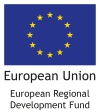In English
In April, Diversity Day is celebrated in Estonia and elsewhere in the world. Its purpose is to recognize and value the importance and uniqueness of each person in companies and organizations as well as in society at large. Project Youth-Sport-Vol was launched in order to provide young people with better access to the labor market through sports volunteering, whereas Ott Pärna, Head of the International Sport Volunteers Movement, considers social diversity one of the most important values of sports volunteering.
What is sports volunteering?
Lack of work experience is considered to be one of the most significant bottlenecks for young people entering the labor market. Often, volunteering is found to be equally valuable to paid work experience when evaluating candidates. Sport is the most attractive field for volunteering with more than 20 million people contributing in the European Union, either occasionally or regularly. In the past, access to sports volunteering has been relatively chaotic in the Central Baltic region. Young people had little information on where and how to offer their services as volunteers and to get information about the various opportunities for volunteering. The development of sports volunteering has been driven by the organization SCULT, whereas its name derives from words sport and culture.
According to Ott Pärna, it was clear that some support was needed during the testing phase. Central Baltic Programme 2014-2020 has made a significant contribution to the start of SCULT's activities. Support of the programme made it possible to create a secretariat, develop an ICT-based platform that allows volunteers to be more easily involved, develop the operational models on which to work, and establish SCULT Academy.
The promise is that counts
What does sports volunteering give to young people and why should they spend their valuable free days on volunteering?
Ott, Head of SCULT, considers various social skills that volunteering provides and the broader social diversity that it supports in many ways as the most important values of volunteering. Although the target group of Central Baltic Programme’s project Youth-Sport-Vol was the unemployed youth, people from different social and cultural backgrounds at all ages and stages of life were working side by side. "The more diverse the team, the better," says Ott, and adds that "value comes from being able to communicate with one another and thereby broaden the horizon, there is a lot of mentoring and learning from each other". There are also activities for those sports volunteers with less physical abilities. For example, young people with visual disabilities have done such activities as unpacking medals in the IRONMAN triathlon etc. Social background of young people themselves is also very different; some of them study, some do not.
For people who have done something for the others even for just half a day, the probability of “choosing the wrong direction” is about 80 percent lower according to different data. Social responsibility, sense of belonging and positive reference groups arise. Pärna says: “One of the greatest values in competitions is that there is no difference between being an athlete, an assistant in logistics or other team member - everybody is equal, mutual respect is very high, everyone depends on each other. One for all, all for one. One of the golden rules and success factors is definitely a promise - if you have made a promise, you have to stick to it - other people depend on you, the overall success of a sporting event or an athlete’s career may depend on you." That gives the young person a lesson about the concept of sense of responsibility and tolerance that, in turn, will result in better coping with different organizations and cultures.
Volunteers giving a hand
In addition to learning and teaching the skills that prepare young people for entering the labor market, it is worth to mention the Youth-Sport-Vol initiative “Give us a hand!”. As a part of the initiative, a 9-meter frame with a treadmill on it was built for a visually impaired young lady. The frame was carried through the 10km race, so that the lady could pass the trail of the Tartu Running Marathon. SCULT's efforts to involve young people have not gone unnoticed. For example, SCULT received a desirable recognition in the Golden Egg Competition for drawing attention to social exclusion in a creative way. In addition, President Kersti Kaljulaid recognized the organization with the title of Includer of Volunteers of 2018, and Tallinn City Government highlighted SCULT in a competition called “the Great Deed for Young People in Tallinn 2018”.
Financial support for developing cross-border sports volunteering model was provided by Interreg Central Baltic Programme 2014-2020 that finances result orientated cross-border cooperation projects in Estonia, Latvia, Sweden and Finland (including Åland).
Eesti keeles
Spordivabatahtlikkuse abil parem ligipääs tööturule
Aprillis tähistatakse Eestis ja mujal maailmas mitmekesisuse päeva. Selle eesmärgiks on märgata ja väärtustada iga inimese tähtsust ja erakordsust nii ettevõtetes ja organisatsioonides kui ühiskonnas laiemalt. Algatus Youth-Sport-Vol loodi selleks, et tagada spordivabatahtlikkuse abil noortele parem ligipääs tööturule, seejuures peab Rahvusvahelise Spordivabatahtlike Liikumise SCULT juht Ott Pärna spordivabatahtlikkuse üheks olulisimaks väärtuseks sotsiaalset mitmekesisust.
Mis on spordivabatahtlikkus?
Töökogemuse puudumist peetakse noorte puhul üheks märkimisväärseimaks pudelikaelaks tööturule sisenemisel. Sageli peetakse vabatahtlikku tööd kandidaatide hindamisel tasustatud töökogemusega võrdselt väärtuslikuks. Sport on vabatahtliku tegevuse kõige atraktiivsem valdkond, millesse panustab üle 20 miljoni inimese Euroopa Liidus, seda kas aeg-ajalt või regulaarselt. Varem on Kesk-Läänemere piirkonnas olnud juurdepääs spordivabatahtlikkusele võrdlemisi kaootiline. Noortel oli vähe infot selle kohta, kus ja kuidas pakkuda oma teenuseid spordivabatahtlikena ning saada teavet vabatahtliku tegevuse erinevate võimaluste kohta. Spordivabatahtlikkuse arendamise on võtnud oma südameasjaks organisatsioon SCULT, mille nimetus tuleb sõnadest „sport“ ja „culture“.
Oti sõnul oli selge, et katsetusfaasis on vaja mingit tuge. SCULTi tegevuse algus sai olulise panuse Kesk-Läänemere programmist, mille toetuse abil ehitati üles organisatsiooni sekretariaat, arendati tehnoloogiaplatvorm, mis lubab vabatahtlikke üha kergemini kaasata, töötati välja tegevusmudelid, mille alusel töötatakse, ning pandi alus SCULT akadeemiale.
Lubadus on see, mis loeb
Mida spordivabatahtlikkus noortele üldse annab ning miks peaks noor oma väärtuslikke vabu päevi vabatahtlikuks olemisele kulutama?
SCULTi juht Ott Pärna peab spordivabatahtlikkuse olulisimateks väärtusteks erinevaid sotsiaalseid oskusi, mida vabatahtlik töö annab, ja sotsiaalset mitmekesisust laiemalt, mida see mitmel viisil toetab. Kesk-Läänemere programmi projekti Youth-Sport-Vol sihtrühmaks olid küll töötud noored, ent külg külje kõrval töötati erineva sotsiaalse ja kultuurilise taustaga inimestega igas vanuses ja eluetapis. „Mida erinevam seltskond, seda parem“, ütleb Ott, ja lisab, et „väärtus tuleneb sellest, et saadakse üksteisega suhelda ja seeläbi maailmapilti avardada, väga palju on mentorlust ja muul moel üksteiselt õppimist“. Tegevusi on nendelegi spordivabatahtlikele, kel füüsilised võimed tagasihoidlikumad, näiteks on nägemispuudega noori IRONMANi triatlonil medaleid lahti pakkinud. Ka noorte endi sotsiaalne taust on väga erinev, osad neist õpivad, osad ei õpi.
Inimeste puhul, kes on teinud kas või pool päeva midagi teiste heaks, on tõenäosus „halvale teele“ minekuks erinevatel andmetel ligikaudu 80 protsenti väiksem. Tekib sotsiaalne vastutus ja kuuluvustunne ning positiivsed referentsgrupid. Pärna sõnab: „Üks suurimatest väärtustest võistlustel on see, et vahet pole, kas oled sportlane, määrdemees, abiline logistikas või erinevate spordialade juures – kõik on võrdsed, vastastikune lugupidamine on väga suur, kõik sõltuvad üksteisest. Üks kõigi, kõik ühe eest. Üheks kuldreegliks ja eduteguriks on kindlasti lubadus – kui oled lubaduse andnud, pead sellest kinni pidama – teised inimesed sõltuvad sinust, ka spordiürituse üleüldine edu või mõne sportlase karjääri tipphetk võib just sinust sõltuda.“ See omakorda õpetab noortele vastutustunnet ja sallivust, mis omakorda võimaldab erinevates organisatsioonides ja kultuurides paremini toime tulla.
Vabatahtlik paneb õla alla
Lisaks nende oskuste õppimisele ja õpetamisele, mis noori tööturule sisenemiseks ette valmistab, väärib märkimist projekti Youth-Sport-Vol algatus „Vabatahtlik paneb õla alla“. Selle käigus ehitati nägemispuudega neiule 9-meetrine jooksulindiga raam, mida kanti läbi kogu 10km jooksu, et ka tema saaks Tartu Jooksumaratoni raja läbida. SCULTi pingutused noorte kaasamisel ei ole jäänud märkamata. Näiteks pälviti sotsiaalsele tõrjutusele looval viisil tähelepanu juhtimise eest ihaldusväärne tunnustus Kuldmuna konkursil. Samuti tunnustas president Kersti Kaljulaid organisatsiooni Aasta Vabatahtlike Kaasaja 2018 tiitliga, ka Tallinna Linnavalitsus tõstis SCULTi esile konkursil Suur Tegu Tallinna Noortele 2018.
Vabatahtlikud panid Tartu Maratonil õla alla
Ühtse spordivabatahtlikkuse mudeli arendamisele andis rahalise toe Interregi Kesk-Läänemere programm perioodil 2014-2020. Projekti raames loodi ühtne platvorm, viidi läbi teadlikkust tõstvad seminarid ning meediakampaaniad. Kesk-Läänemere programm rahastab oma piirkonnas projekte, mis pakuvad ühistele väljakutsele lahendusi. Programmi liikmesriigid on Eesti, Läti, Rootsi ning Soome (sh Ahvenamaa).



